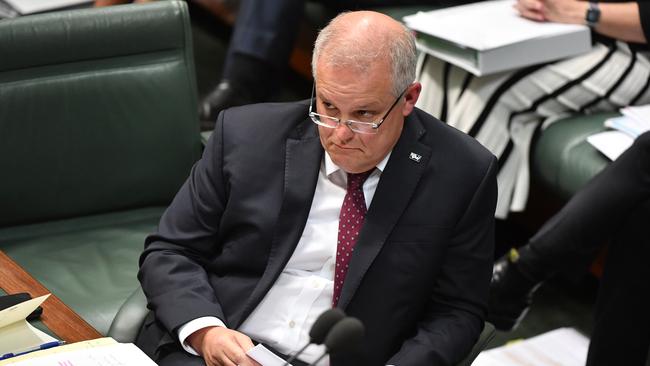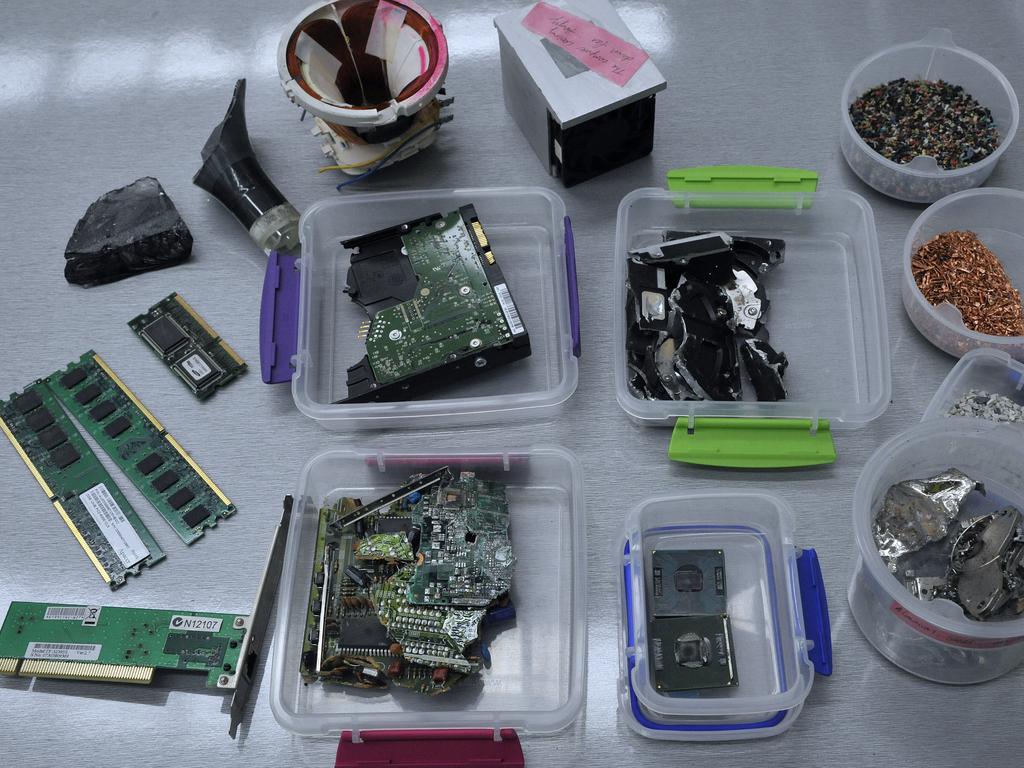Scott Morrison’s recycling strategy to grow green jobs
Scott Morrison will invest in new recycling infrastructure across Australia to develop a greens job boom.

Scott Morrison will invest in new recycling infrastructure across Australia and implement an environmental sustainability trigger for federal contracts to drive a greens job boom and develop a targeted national waste market.
In a speech to the National Plastics Summit in Canberra on Monday, the Prime Minister will outline a three-point recycling policy plan to ensure Australians’ waste is not “exported to someone’s village or waterway”.
Following a decision by Infrastructure Australia to list national waste and recycling management as one of five new national high-priority initiatives, Mr Morrison will flag the government’s commitment to invest in new recycling infrastructure and technology.
“I will have more to say on this closer to the upcoming budget, but the commonwealth stands ready to co-invest in these critical facilities with state and territory governments, and with industry,” Mr Morrison will say.
“We are working with state and territory governments to identify and unlock the critical upgrades that will lead to a step-change in their recycling capacity. And we will invest with governments and with industry on a 1-to-1-to-1 basis.”
Mr Morrison, who first flagged his commitment to recycling and reforming the nation’s approach to waste management last year, will tell 200 industry, government and community sector representatives that to “make the system really hum, we need to build the market”.
“Through months of consultation with industry, consumers, retailers and brand-owners, the one issue everyone comes back to is the need to increase demand for recycled products,” he will say.
“Different countries have tried this in different ways but, true to our principles, my government will not take a top-down, tax-and-punish approach.
“We want to encourage and incentivise the best. We want to support recycled products to compete in the market. We want to see industry step up and be part of the solution. And government must be part of the solution as well.”
Manufacturing industry leaders have been calling on the federal government to make a financial commitment in support of a new recycling market.
Outlining his government’s commitment to build demand for a new waste market, Mr Morrison will say “lifting industry capacity will increase our ability to use these materials constructively”.
“We will be changing the Commonwealth Procurement Guidelines to make sure every procurement undertaken by a commonwealth agency considers environmental sustainability and use of recycled content as a factor in determining value for money.
“We’ve used commonwealth procurement policy to energise our indigenous businesses and had tremendous success — and we will do the same with Australian recycled product.”
Speaking in front of the director-general of the Secretariat of the Pacific Regional Environment Program, Kosi Latu, Mr Morrison will warn that in the Pacific “we have floating plastic waste which is nearly three times the size of France”.
“Our Pacific family have not caused this problem, but they have to deal with the impacts of it on their fisheries, wildlife and islands. We are choking our oceans,” he says.
“Scientists estimate that in just 30 years’ time the weight of plastics in our oceans will exceed the weight of fish in our oceans. That’s appalling.”
Ahead of a COAG meeting in two weeks where he will finalise details with state and territory leaders on banning the export of waste, paper, glass and tyres, Mr Morrison will say “investing in the (recycling) sector isn’t just good for the environment, it’s good for our economy”.
“The waste sector in Australia employs around 50,000 people and generates over $15bn per year. For every 10,000 tonnes of waste sent to landfill, 2.8 direct jobs are created. But if we recycle the same waste, 9.2 direct jobs are created.
“According to the Australian Council of Recycling, recycling more domestically could create more than 5000 new jobs. The global recycled plastics market is expected to grow at 7.9 per cent annually over the next decade — and be worth almost $67bn in 2025.”
Mr Morrison will say that with only 12 per cent of plastic put out in yellow bins actually being recycled, it was time to “transform our waste and recycling markets”.
“We need to invest in this industry — invest in the technological innovation that maximises the value of the recycled product and minimises the costs as well,” he will say.
“The Australian Council of Recycling observed that only 8 per cent of the $2.6bn collected by states and territories through waste levies has been reinvested in recycling infrastructure and technology.”
Australian Food and Grocery Council acting chief executive Geoffrey Annison said its members were already making significant investments in waste and recycling to align with the 2025 national packaging targets.
The nation’s $122bn food, beverage and grocery manufacturing sector has called on governments to support “timeframes which are achievable”.
“For companies to make the transition to packaging with higher levels of recycled content, which is both expensive and scarce, numerous challenges including the variation in collection and recycling systems and the lack of local recycling infrastructure must be prioritised,” Dr Annison said.








To join the conversation, please log in. Don't have an account? Register
Join the conversation, you are commenting as Logout